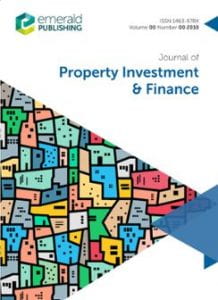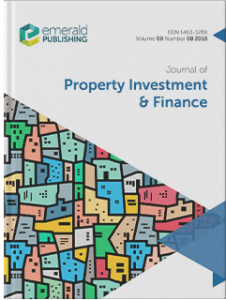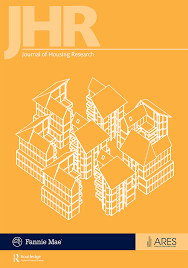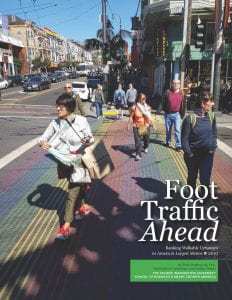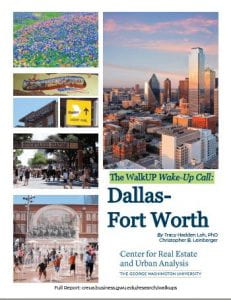Research
Research Overview
Like the real estate industry, The Center for Real Estate and Urban Analysis research agenda is evolving over time. Originally focused on walkable and sustainable communities with projects lead by Professor Emeritus Chris Leinberger that can be found online. Our work has expanded to include changing trends in the housing market with a project by Dr. Vanessa Perry on the State of Homeownership in Black America and one with Dr. Elaine Worzala as co-author on housing turnover and the economic base of a community 2020 Chris Cain, Thomas M. Springer and Elaine Worzala, “Housing turnover and employment change”. Journal of Housing Research, 29 (2): 89-106. In addition, Dr. Worzala has recently published papers focused on the growing importance of technology in the real estate industry , as well as papers analyzing the real estate academic community The influence of changes in the workplace on graduate real estate education” Journal of Real Estate Practice and Education, 22 (1): 67-80, and real estate education.
Going forward, the Center will continue to work on projects that stay at the forefront of issues as they impact our industry and opportunities arise to study the use of the built environment. We will always be applied in focus and complete studies that help to solve the important problems facing the real estate sector. Our goal is to actively bring together students, faculty, and industry to better understand the complex nature of this asset class. We plan to encourage other research faculty at GWU and around the world to complete research that is relevant and responsible as well as practical and useful to our constituents. Watch us as we cement our reputation as thought leaders in this incredibly dynamic and exciting industry.
Research Studies
Thank you in advance for reading our robust selection of research!
Please click the title to read more
New to Date Studies:
Tipping the SCALE: Will Alternative Data Promote or Impede Fair Lending Goals?
It has been more than 50 years since the passage of the Fair Housing Act, yet the homeownership rates of Blacks continue to be some 30 percentage points below those achieved by non-Latinx Whites.
Homeward Bound: Removing Barriers to Mortgage Credit for Black Homebuyers
We analyze some of the key barriers to Black homeownership and propose several solutions that promise to expand homeownership opportunities, lower the costs of homeownership, and hasten equity accumulation for Black households.
Algorithms for All: Has Digitalization in the Mortgage Market Expanded Access to Homeownership?
Digitalization is transforming the mortgage market at every stage of the value chain.
Be Careful What You Ask For: The Economic Impact of Changing the Structure of Real Estate Agent Fees
This paper develops a simple economic model to illustrate how changing the current compensation structure could affect potential buyers’ ability to qualify for a mortgage and purchase a home.
A Loan At Last: Race and Racism in Mortgage Lending
Homeownership is the primary source of wealth accumulation in the U.S., yet homeownership rates for Blacks and Latinx households remain significantly lower than those of White Americans
Homeward Bound: Removing Barriers To Mortgage Credit For Black Homebuyers
Homeownership is the primary source of wealth accumulation in the United States, yet homeownership rates for Black households remain significantly lower.
Our Office
2131 G Street NW
Washington, D.C. 20052
Contact Us
Office Hours
Mon-Fri: 9am – 5pm
Sat-Sun: Closed


